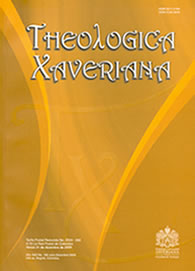Abstract
This paper proposes a link between the eschatological interpretation and Mark’s christology, and defends the idea that the messianic interpretation is founded on the ignorance principle. We find this in apocalyptic groups of the II to I centuries B.C. and specifically in the Qumran literature. With this idea in mind, the relation existing between the eschatological reading of these apocalyptic Jewish groups, such as Qumran, and the Gospel of Mark will be discussed. In particular, from the proposed perspective, aspects will be shown that explain the motif of the incomprehension of the disciples. This relation is established diachronically, with texts of the Enochic traditions and the Qumran literature, as much as synchronically, with texts of Mark’s Gospel. It will be shown that this principle was known and used by the evangelist in order to compose and work out his Gospel.
This journal is registered under a Creative Commons Attribution 4.0 International Public License. Thus, this work may be reproduced, distributed, and publicly shared in digital format, as long as the names of the authors and Pontificia Universidad Javeriana are acknowledged. Others are allowed to quote, adapt, transform, auto-archive, republish, and create based on this material, for any purpose (even commercial ones), provided the authorship is duly acknowledged, a link to the original work is provided, and it is specified if changes have been made. Pontificia Universidad Javeriana does not hold the rights of published works and the authors are solely responsible for the contents of their works; they keep the moral, intellectual, privacy, and publicity rights.
Approving the intervention of the work (review, copy-editing, translation, layout) and the following outreach, are granted through an use license and not through an assignment of rights. This means the journal and Pontificia Universidad Javeriana cannot be held responsible for any ethical malpractice by the authors. As a consequence of the protection granted by the use license, the journal is not required to publish recantations or modify information already published, unless the errata stems from the editorial management process. Publishing contents in this journal does not generate royalties for contributors.


